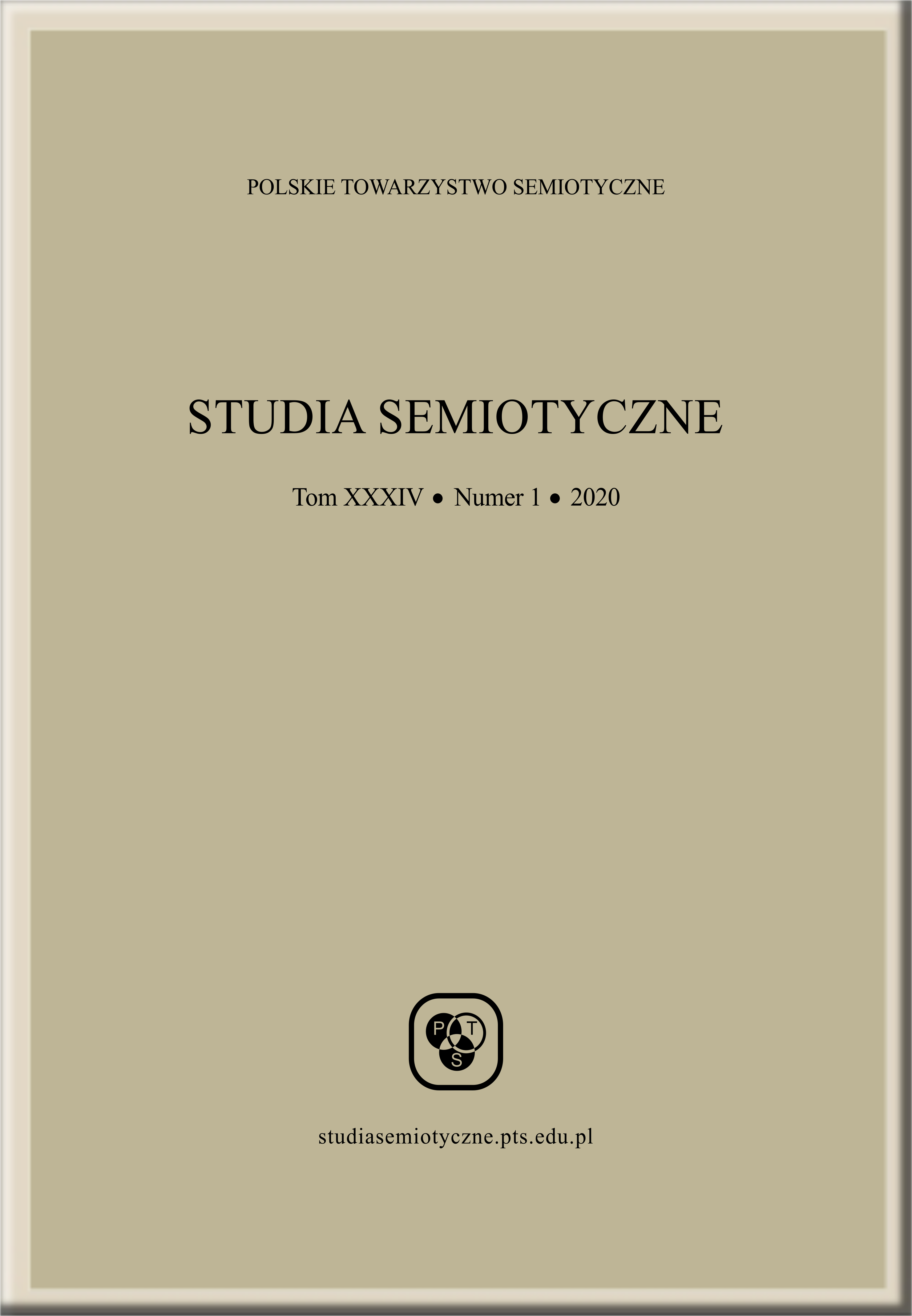Abstrakt
DOI: http://doi.org/10.26333/sts.xxxiv1.12
Certain selected issues around the Gödelian anti-mechanist arguments which have received less attention are discussed.
Bibliografia
Boolos, G. (1968). Review of ‘Minds, Machines and Gödel’, by J.R. Lucas, and ‘God, the Devil, and Gödel’, by P. Benacerraf. Journal of Symbolic Logic, 33, 613–615.
Carlson, T. J. (2005). Knowledge, Machines, and Reinhardt’s Strong Mechanistic Thesis. Annals of Pure and Applied Logic, 105, 51–81.
Davis, M. (1990). Is Mathematical Insight Algorithmic? Behavioral and Brain Sciences, 13, 659–660.
Davis, M. (1993). How Subtle is Gödel’s Theorem? More on Roger Penrose. Behavioral and Brain Sciences, 16, 611–612.
Feferman, S. (1995). Penrose’s Gödelian Argument: A Review of Shadows of Mind, by Roger Penrose. Psyche, 2(7).
Feferman, S. (2009). Gödel, Nagel, Minds, and Machines. Journal of Philosophy, 106(4), 201–219.
Feferman, S. (2011). Gödel’s Incompleteness Theorems, Free Will and Mathematical Thought. In: R. Swinburne (Ed.), Free Will and Modern Science (pp. 102–122). OUP/British Academy.
Franzén, T. (2005). Gödel’s Theorem: An Incomplete Guide to its Use and Abuse. Wellesley: A.K. Peters.
Gaifman, H. (2000). What Gödel’s Incompleteness Result Does and Does not Show. The Journal of Philosophy, 97, 462–470.
Gödel, K. (1931). Über formal unentscheidbare Sätze der Principia Mathematica und verwandter Systeme I [On Formally Undecidable Propositions of Principia Mathematica and Related Systems I]. Monatshefte für Mathematik und Physik, 38, 173–198.
Gödel, K. (1951) Some Basic Theorems on the Foundations of Mathematics and Their Implications [Gödel’s 1951 Gibbs lecture]. In S. Feferman et al. (Eds.), Collected Works, Volume III, Unpublished Essays and Lectures (pp. 304–323), Oxford University Press.
Gödel, K. (1986). Collected Works I. Publications 1929–1936 (S. Feferman et al., Eds.). Oxford: Oxford University Press.
Hodes, H. (1998). Recursion-Theoretic Hierarchies. Routledge Encyclopedia of Philosophy. Retrieved from: https://www.rep.routledge.com/articles/thematic/recursion-theoretic-hierarchies
Koellner, P. (2016). Gödel’s Disjunction. In L. Horsten, Welch, P. (Eds.), Gödel’s Disjunction: The Scope and Limits of Mathematical Knowledge (pp. 148–188). Oxford: Oxford University Press.
Koellner, P. (2018a). On the Question of Whether the Mind Can Be Mechanized, I: From Gödel to Penrose. Journal of Philosophy, 115, 337–360.
Koellner, P. (2018b). On the Question of Whether the Mind Can Be Mechanized, II: Penrose’s New Argument. Journal of Philosophy, 115, 453–484.
Lucas, J. R. (1961). Minds, Machines, and Gödel. Philosophy, 36, 112–137.
Lucas, J. R. (1996). Minds, Machines, and Gödel: A Retrospect. In P. J. R. Millican, A. Clark (Eds.), Machines and Thought. The Legacy of Alan Turing (Vol. 1, pp. 103–124). Oxford: Oxford University Press.
Maddy, Penelope (1988). Believing the Axioms. I, II. Journal of Symbolic Logic, 53, 481–511, 736–64.
Megill, J. (2012). The Lucas-Penrose Argument about Gödel’s Theorem. The Internet Encyclopedia of Philosophy. Retrieved from: https://www.iep.utm.edu/lp-argue/
Odifreddi, P. (1989). Classical Recursion Theory. Amsterdam: North-Holland.
Penrose, R. (1989). The Emperors New Mind: Concerning Computers, Minds, and the Laws of Physics. New York: Oxford University Press.
Penrose, R. (1994). Shadows of the Mind: A Search for the Missing Science of Consciousness. New York: Oxford University Press.
Penrose, R. (1995). Beyond the Doubting of a Shadow: A reply to Commentaries of Shadows of the Mind. Psyche, 2(23).
Penrose, R. (1997). On Understanding Understanding. International Studies in the Philosophy of Science, 11, 7–20.
Putnam, H. (1960). Review of Gödel’s Proof by Ernest Nagel & James R. Newman. Philosophy of Science, 27(2), 205–207.
Putnam, H. (1975). What is Mathematical Truth? Historia Mathematica, 2, 529–545.
Raatikainen, P. (2005). On the Philosophical Relevance of Gödel’s Incompleteness Theorems. Revue Internationale de Philosophie, 59, 513–534.
Raatikainen, P. (2020). Gödel’s Incompleteness Theorems. The Stanford Encyclopedia of Philosophy (Summer 2020 Edition, E. N. Zalta, Ed.). Retrieved from: https://plato.stanford.edu/archives/sum2020/entries/goedel-incompleteness
Reinhardt, W. N. (1985a). Absolute Versions of Incompleteness Theorems. Nous, 19, 317–346.
Reinhardt, W. N. (1985b). The Consistency of a Variant of Church’s Thesis with an Axiomatic Theory of an Epistemic Notion. In Special Volume for the Proceedings of the 5th Latin American Symposium on Mathematical Logic (Volume 19 of Revista Colombiana de Matemáticas, pp. 177–200).
Shavrukov, V. Yu. (1997). Interpreting Reflexive Theories in Finitely Many Axioms. Fundamenta Mathematicae, 152, 99–116.
Shapiro, S. (1998). Incompleteness, Mechanism, and Optimism. Bulletin of Symbolic Logic, 4, 273–302.
Shapiro, S. (2016). Idealization, Mechanism, and Knowability. In L. Horsten, Welch, P. (Eds.), Gödel’s Disjunction: The Scope and Limits of Mathematical Knowledge (pp. 189–207). Oxford: Oxford University Press.
Tarski, A., Mostowski, A., Robinson, R. M. (1953). Undecidable Theories. Amsterdam: North-Holland.
Williamson, T. (2016). Absolute Provability and Safe Knowledge of Axioms. In L. Horsten, Welch, P. (Eds.), Gödel’s Disjunction: The Scope and Limits of Mathematical Knowledge (pp. 243–253). Oxford: Oxford University Press.


